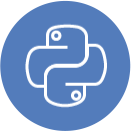Our Alumni Work At

"AI to contribute $16.1 trillion to the global economy by 2030. With 133 million more engaging, less repetitive jobs AI to change the workforce." - (Source). Data Science with Artificial Intelligence (AI) is a revolution in the business industry.. AI is potentially being adopted in automating many jobs leading to higher productivity, less cost, and extensible solutions. It is reported by PWC in a publication that about 50% of human jobs will be taken away by the AI in the next 5 years.
There is already a huge demand for AI specialists and this demand will be exponentially growing in the future. In the past few years, careers in AI have boosted concerning the demands of industries that are digitally transformed. The report of 2018 states that the requirements for AI skills have drastically doubled in the last three years, with job openings in the domain up to 119%.
FAQs
Dehradun is developing with tech startups and industries that rely on data-driven insights, creating ample opportunities for professionals skilled in Data Analytics, especially in sectors like healthcare and tourism.
Yes, Dehradun is an affordable city to pursue our course in Data Analytics. Living there is much less than at the metro; hence, it happens to be an affordable choice for students seeking higher education in Data Analytics.
Dehradun's calmness away from the usual distractions of larger cities makes it a place for focused studies and personal well-being, setting ideal for intensive courses such as Data Analytics.
With the increasing rate of tech and business events, local meetups, and collaborations, students can therefore network with industry experts and peers to boost career prospects in Data Analytics.
Graduates from Dehradun are highly sought after since there exist IT companies, financial institutes, and emerging startups across India and other locations, especially with growing Data Analytics.
Absolutely, a beginner without any technical background can opt for our Data Analytics course in Dehradun. Most courses in Dehradun are beginner-friendly because they provide foundational training in statistics, programming, and data handling. They also have trainees with no technical background.
The curriculum is highly practical with hands-on training using real-world data, case studies, and live projects such that students are industry-ready by the time they complete their course.
Yes. Most of our courses offer an industry-recognized certification from partners like Microsoft, IBM, or Google. This certification provides added credibility for students entering the field of Data Analytics.
Most Data Analytics courses in Dehradun include machine learning methods, which the student can use to build predictive models and extract insights from information using some of the most advanced algorithms.
Data visualization is highly covered in the curriculum. Students learn how to use tools that could give them the ability to present their insights from data in really creative and visual ways, using Tableau, Power BI, or Matplotlib, among others.
Yes, because students learn the basic skill of data cleaning and preprocessing, which forms the basis of stable model construction and the handling of a real-world dataset for high-quality analysis.
The curriculum includes the core tools in statistics, such as SPSS, R, and Python libraries (NumPy, pandas), which enable them to conduct robust data analysis and statistical modeling.
Courses can also be given a backdrop that connotes how difficult or easy they are, as our Data Analytics courses in Dehradun are structured to provide progressive learning for students, from the most basic to the more complex ideas.
The average beginning salary for fresh Data Analytics graduates from Dehradun can range from 4-7 lakh per year, depending on the skills, internship experience, and kind of employer.
Yes, Dehradun institutions mainly provide job assistance in regard to resume building, interview training, and contact with hiring companies in IT, banking, and retail.
Once a student completes his course and receives the Course Completion Certificate, he is eligible for an internship. We offer an internship with AiSPRY. The students gets involved in a live project with AiSPRY. At the end of his internship, he will receive an Internship Certificate in recognition of his efforts.
A fresh graduate will greatly benefit from the internship opportunity with AiSPRY that our institute offers. He will work on a live project and get hands-on experience of implementing a data analytics solution. This will improve his employability immensely. Most employers value live project experience only.
You can apply for the following jobs after completing the course:
- Data Analyst
- Data Scientist
- Data Engineer
- Data Architect
- Business Analyst
A Data Analyst deals with Data Cleansing, Exploratory Data Analysis and Data Visualisation, among other functions. The analyst's job is to sift through historical data to understand the present state of the business.
A Data Scientist builds algorithms to solve business problems using statistical tools such as Python, R, SAS, STATA, Matlab, Minitab, KNIME, Weka etc. He also performs predictive modelling to facilitate proactive decision-making. Machine learning algorithms are used to build predictive models using Regression Analysis and a Data Scientist must develop expertise in Neural Networks and Feature Engineering.
A Data Engineer is essentially a programmer in Spark, Python and R and complements the role of a data scientist.
A Data Architect is entrusted with the task of establishing hardware and software infrastructure needed to perform Data Analysis. They have to select Hard Disk, Network Architecture, Databases, GPUs etc.
Companies from tech startup houses to great big e-commerce, healthcare, and finance organizations require Data Analytics specialists, thereby offering internships.
Business Analytics is the emerging field in data science. It is definitely worth pursuing a data analytics after your MBA. You can specialize in Financial Analytics, HR Analytics or Supply Chain Analytics. Once you finish your data analytics you can apply for the position of Business Analyst.

Field of Data Analyst Jobs in Dehradun
There are around 97000 vacant positions in data analytics in India. The opportunities for fresher account for 21 percent of analytics jobs in India. Employers are companies like Tech Mahindra, TCS, Genpact, Wipro, and HCL Infosystems.

Salaries for Data Analyst in Dehradun
The average salary of a Data Analyst in India is Rs.5 lacs per annum. A fresher can earn anywhere between Rs.1.62 to Rs.3.23 lacs, a junior analyst gets around Rs.4,51000 per annum while a Senior Data analyst earns Rs.7,74000 per annum.

Projects for Data Analytics in Dehradun
The Indian government has initiated several data analytics projects in the fields of Agriculture, Electricity, Water, HealthCare, Education, Road Traffic Safety and Air Pollution.

Role Of Open Source Tools In Analytics
Python is easy to learn and maintain and therefore a Godsend to developers in Data Science. Its extended library makes it possible to stretch the applications of Python from Big Data Analytics to Machine Learning. R is the preferred tool of statisticians that enables effective data storage.

Modes of Training for Data Analytics
The course in Dehradun is designed to suit the needs of students as well as working professionals. We at 360DigiTMG give our students the option of both classroom and online learning. We also support e-learning as part of our curriculum.

Industry Applications of Data Analytics
Data Analytics is used for securities fraud early warning, card fraud detection systems, demand enterprise risk management, analysis of healthcare information, seismic interpretation, reservoir characterization, energy exploration, traffic control and route planning.
Talk to your program advisors today!
Get your profile reviewed

